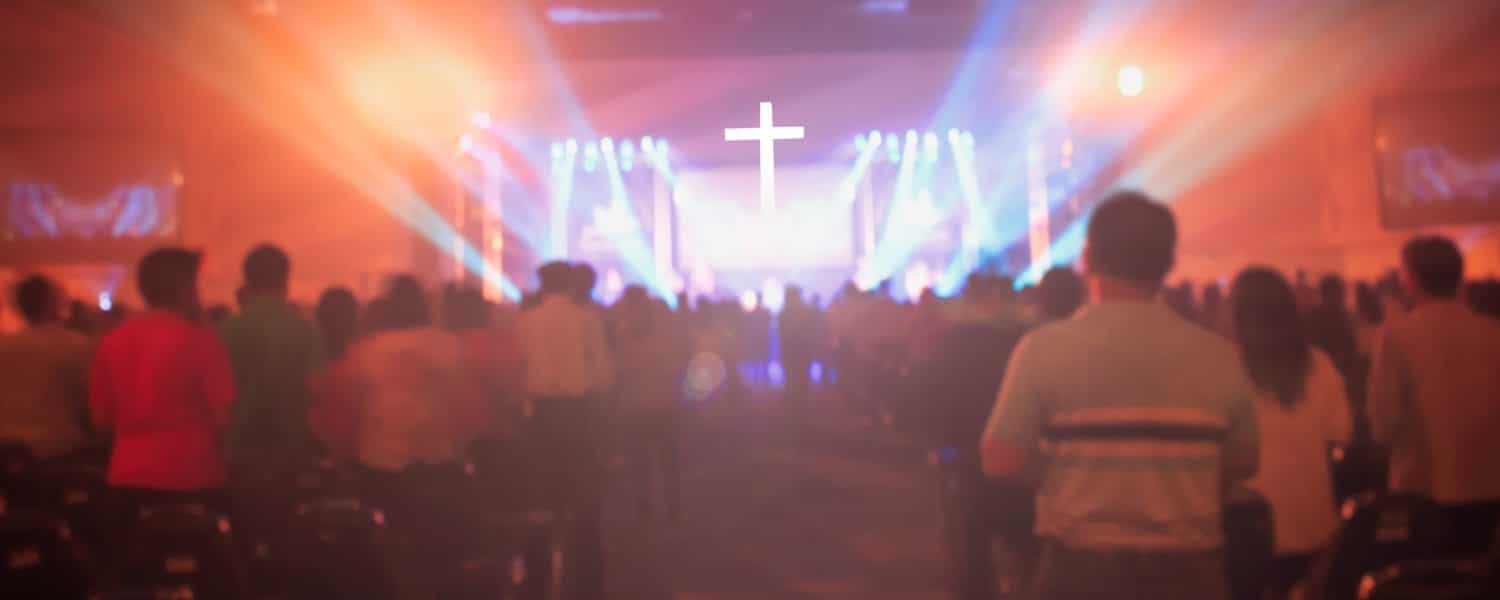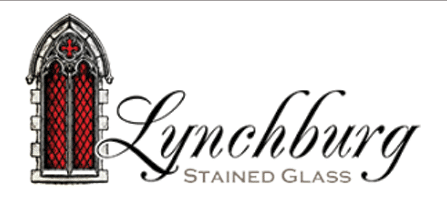In the last few decades, church stage design has become an influential trend that can have an enormous effect on entire congregations. Increasingly, churches that employ this modern and updated decorative strategy attract a wide audience, all worshipping together in a contemporary setting. As multi-sensory worship experiences and creative sermons become more and more popular, well-thought-out church stage decoration ideas can make a significant difference for a parish.
Historically, churches used impressive cathedrals with vaulted ceilings, Gothic architecture, iconic art, and stained glass to fill their congregations with awe and designate the space as a special place of worship. Church leaders knew that the environment they created could have a profound impact, making worshipers feel inspired, reflective and connected to God.
Like with the modern wedding ceremony, many churches are trying to achieve the same impact with more modern church decoration ideas. Just like religious music has evolved from Gregorian Chant to Christian rock, so have the visual aesthetics of many churches changed. While church stage design is most popular with Protestant Christian churches, it can be adapted to suit the needs of any faith.
Why Stage Design?
During the majority of a church service, the entire congregation should be directing their attention to the stage—whether they’re listening to a sermon, participating in musical performances, worshipping in unison, or anything else that goes on during service. Some churches have architecturally eye-catching and impressive stages by design, but that’s not the case for most churches.
For smaller churches, or those on a budget, a small stage is the norm. With the right stage design, however, even the smallest stage can look large and impressive, become a powerful focal point for your service, and capture your audience’s attention from the moment they walk through the door.
With a little ingenuity and creativity, you can maximize any church stage on any budget, creating a lasting impression your congregation is sure to love.
- Choose the right church stage design for your congregation.
Church stage design is absolutely not “one size fits all.” There are seemingly unlimited options available, so make your choices based on the space that you have and the atmosphere you want to create. Consider the layout of your church, the culture of your congregation, your sermon topics, the technical skills of your staff or volunteers, and your budget.
When picking a church stage design aesthetic, it’s important to keep in mind what kind of service your church provides and then go with a design strategy that enhances your mission. For some churches, a bold, modern, eye-catching design can create a “wow factor” that will attract new parishioners to services and entice them to come back. Other, more traditional congregations may prefer a more minimal approach that keeps the focus on the scripture itself. Another option is to create a cozy, homey, intimate atmosphere with ambient lighting and décor.
If you’re unsure about what kind of strategy to go with, consider asking members of the congregation what draws them specifically to your church. Their feedback may point you in the right direction and help you create a space they’ll love even more.
- Start from the ground up.
From the floor to the ceiling, every single square inch of your church stage provides an opportunity to include design features customized for your congregation. Start your design at the floor and go up from there. Area rugs are an excellent way to make any space feel more intimate, homey, or refined.
Rugs are commonly used in interior design to give a room more layers, making the design feel more polished and complete. Your options here are limitless. You could have cozy patterned rugs layered on the floor to give your stage more of a studio vibe or pick a solid color for something sleek and modern. Choosing the right rug could make your church stage feel elegant, rustic, artistic, inviting, classic, or bold, all depending on the colors and patterns (or lack thereof) you go with.
Church stages can be irregularly shaped, but pay that no mind! You can overlap coordinated area rugs for more texture, pick one and center it, or even buy one in a custom shape.
An added reason to use rugs to customize your church stage design is their acoustic benefits. Rugs do an excellent job of absorbing sound, minimizing the sounds of footsteps and movement. If you have musical components to your worship services or want to ensure all ears are tuned into the Word, rugs are the way to go.
- Lighting is key.
Nothing draws more attention than good lighting. Lighting is an especially useful strategy in small spaces because it can have a big impact while occupying minimal space. With different lighting techniques alone, you can make dramatic effects, create relevant designs, and even change the mood of the entire room.
If the thought of lighting design makes you feel overwhelmed, don’t worry! It doesn’t have to be difficult or expensive. You might be thinking of spotlights and rigs, which can be an excellent way to focus an audience’s attention, but those aren’t the only options. Little things like adding color with LED bulbs or canned filter lights, adding lamps or string lights around the stage, and being more conscious about the tone of your light bulbs can make a tremendous difference.
A key lighting design feature that is often overlooked is to use layered lighting to draw attention to different sections of the stage. The primary layer should be the general lighting you’re using to light the room. For many, those will be overhead lights, but there are still customization options. For a feeling of comfort and invitation, choose warm white bulbs. Cooler whites, on the other hand, can make space more energized. Bulbs with a dimmer can also add more customization.
Another layer should be on the floor to light the front of the stage, creating a clear distinction between the stage and the rest of the room. Of course, you also want a layer of lighting to highlight the focal points on the stage. Spotlights get this job done very effectively. Finally, incorporate a layer of ambient lighting across the stage with lamps, string lights, or hanging bulbs. The key to having good lighting isn’t to have a one-note bright stage, but a layered one.
For more complicated designs, you will want to enlist the help of a professional or a church-goer with lighting design experience. If your church is affiliated with or has connections to a school that has a theatre program, you might find lighting help there. To make a small church stage seem more spacious, try setting stage lights in the corners and along the back barriers of your stage, shining upward along the wall. No matter how your stage is designed, your lighting designs, techniques, and features can create the ambiance you want for your church, making your services even more special and memorable.
- Utilize wood pallets.
Wood pallets are a design trend in both homes and church stages for a multitude of reasons: they’re versatile, affordable, and create a large impact without taking up much space. Look in the budget home design corners of the Internet, and you’ll see people using wood pallets as media stands, shelving, and even bed frames. They can instantly transform a space with a rustic touch.
When it comes to incorporating wood pallets into church stage design, the sky’s the limit. You could use their wood to make a beautiful, shiplap-inspired stage backdrop, cut them into whatever design you want, paint them a bold color, paint them white, write on them with bold typography, string lights through them, or any combination of the above. Just make sure to follow wood safety protocol—wear gloves to avoid splinters, and goggles if you plan to cut them!
The best thing about wood pallets—and the reason they’ve become so ubiquitous—is that you can usually find them very cheap or even free! Visit local hardware stores and construction sites to ask if they have any to spare. It’s also worth a visit to wholesale retailers, as they may have some too. If those methods fail, try looking at online platforms like Craigslist.
- Celebrate the holidays!
Nothing creates a special holiday feel quite as well as some good decorations. Whether you’re celebrating Christmas, Easter, Hanukkah, or Ramadan, there are lots of ways that you can use stage design to foster a festive environment. Obviously, the specifics depend on the holiday, but some general tips are to customize lighting to holiday colors, add a festive throw rug, and string relevant decorations across your backdrop.
Religious holidays are about so much more than decoration, but adding a little holiday cheer never hurt anybody. Further, making your space reflect the spirit of the holiday you’re celebrating can help your congregation feel even more connected to its spiritual themes.
- Think beyond the stage.
While the stage should be the focal point of any church and it makes sense to focus your effort there, don’t neglect the rest of your space! Every area of your church provides the opportunity to enhance the environment and atmosphere you’re aiming to create. Seating, general lighting, window treatments, and decor can make a world of difference.
One often neglected area of churches is along the aisles. If decorated correctly, your church’s aisles can showcase the hard work you’ve put into your church stage design by leading the congregation’s eyes in a clear path to the stage. Perhaps the simplest but most effective way to spruce up your aisles is with runners. Pick a color that complements your aesthetic and see instant results!
Any combination of the above is sure to transform your space into a beautiful place of worship and community.
This information is courtesy of Rug Street, a family owned and operated specialty carpet and rug store, based in Chandler, Arizona, serving business and residential customers across the country, www.rugstreet.com.














